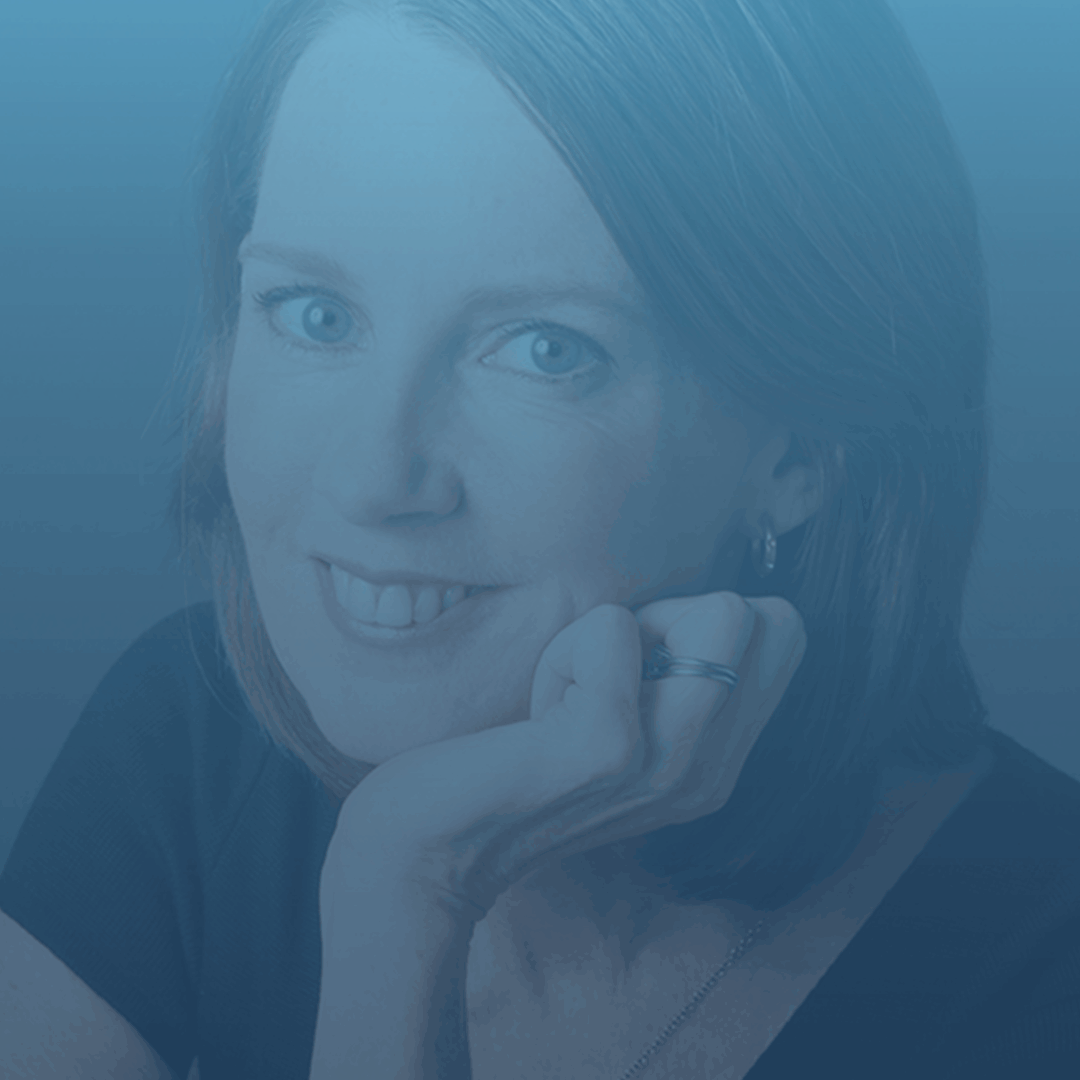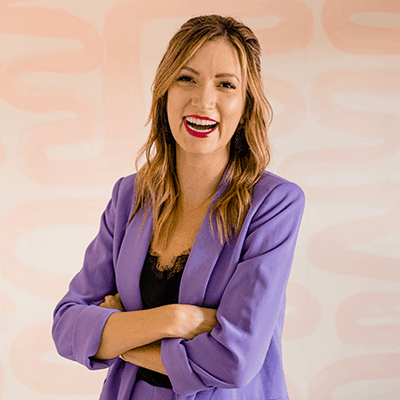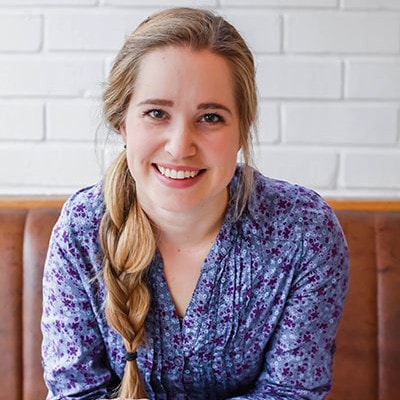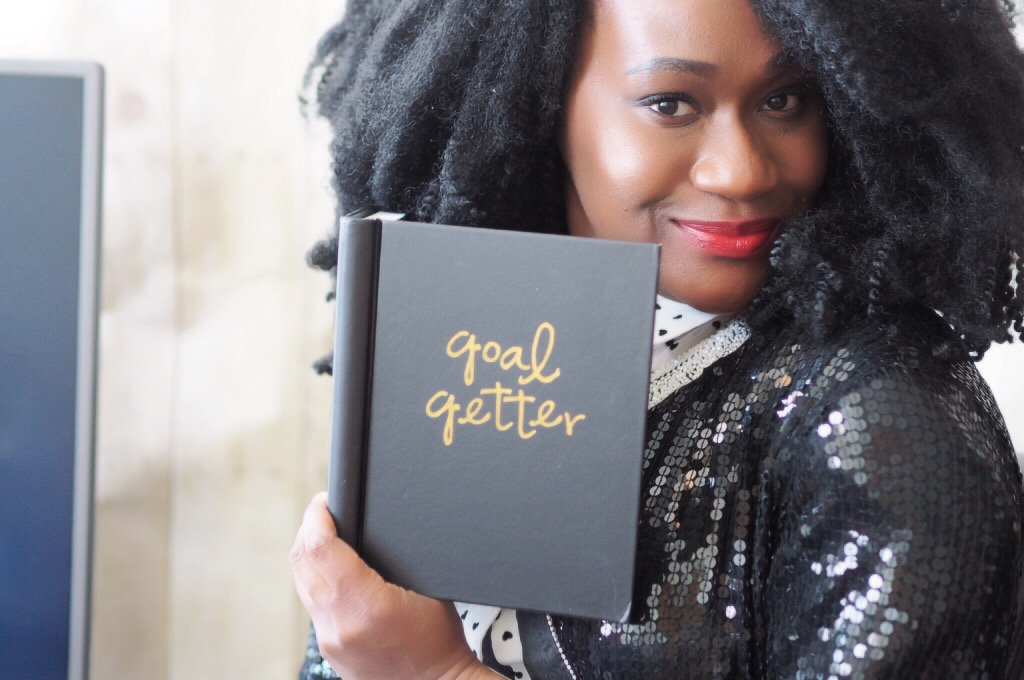Several years ago when I was first starting my business and going through a period of depression and boredom, I bought a book called The Happiness Project that changed my life in a very meaningful way. It was almost like reading the diary of a friend who spent an entire year trying to find the keys to massive joy and contentment. And my friends, I’m so excited to introduce the author of that book with you today: the amazing Gretchen Rubin!
In this episode, we’re talking about Gretchen’s latest book, The Four Tendencies. She found that people tend to belong to one of “four tendencies,” or personality types, when following habits and sticking to routines. As you’ll hear, each tendency excels at habits in a different way, and knowing your tendency can help you live a more joyful and consistent life (and help others in your life do the same). Can you guess which “tendency” I am? (You’ll find out in the interview!)
Gretchen has authored several books, including the New York Times best sellers Better Than Before and Happier at Home. She also co-hosts an award-winning weekly podcast with her sister Elizabeth, called Happier with Gretchen Rubin. Fast Company added Gretchen to their list of most creative people in business and she’s even a member of Oprah’s coveted “SuperSoul 100.”
If you want to finally figure out how to keep your habits and develop new ones, this episode is for you.
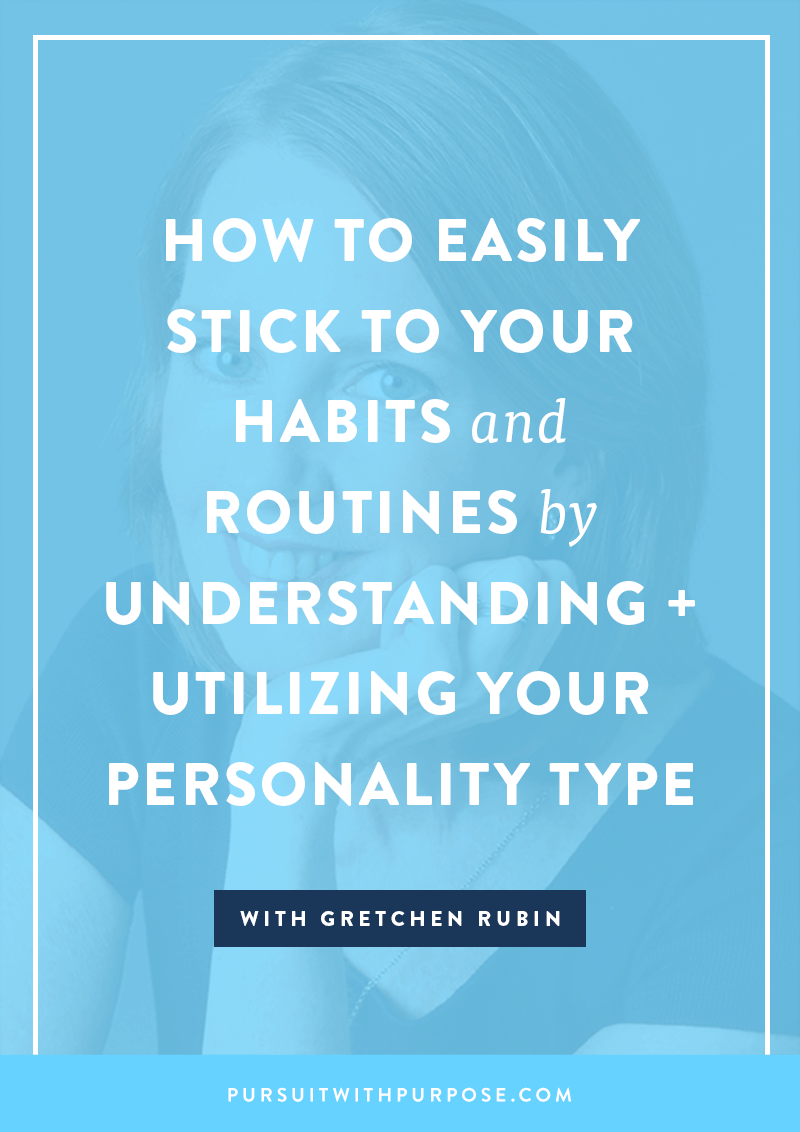
Check out the episode below:
In this episode, you’ll hear about things like…
- What inspired Gretchen to move into the self-help space (or as she calls it, “self-helpful”)!
- How Gretchen accidentally stumbled on the framework for her latest book.
- A detailed low-down on each of the four tendencies and where they come from (including which one I am!).
- The 7 essential areas where people want to change their habits.
- How you can use your tendency to improve your relationships.
- The habit Gretchen implemented that’s had the biggest impact in her own life.
Some Questions I ask…
1. How does knowing our tendency help us create stronger habits?
2. Which tendency are you? How has it shown up in our life?
3. How can knowing the tendencies of other people in our lives, like romantic partners, family members, or friends help us create a stronger relationship with them?
Links from the interview:
- Gretchen’s Website
- Gretchen’s Books
- Gretchen’s Podcast, Happier with Gretchen Rubin
- Gretchen on Facebook (she hosts a Facebook Live every Monday!)
- Gretchen on Twitter
- Gretchen on LinkedIn
- The Four Tendencies Quiz
- Better App
- Why We Get Fat: And What To Do About It, by Gary Taubes
What do you think?
I’d love to hear your thoughts on this episode. After taking Gretchen’s free Four Tendencies quiz, leave a comment below and fill me in. Which tendency are you? 🙂
Here’s how to subscribe + review
Want to be the first to know when new episodes are released? Click here to subscribe in iTunes!
Also, podcast reviews are pretty darn important to iTunes and the more reviews we receive, the more likely we’ll be able to get this podcast and message in front of more people (something about iTunes algorithms?). I’d be extremely grateful if you left a review right here letting me know your favorite part of this episode.
#PursuitWithPurpose
Loving the podcast? I encourage you to use the hashtag #PursuitWithPurpose to show our PWP tribe how you live your purpose everyday. Plus, you’ll get to sift through the hashtag to find other business owners who care about community and connectedness over competition and comparison. And I’ll be reposting some of my favorite images and stories, too. 🙂
Thank you for listening!
Transcript
Read the Interview Transcription HereToday, we’re talking about her latest book, “The Four Tendencies”. During Gretchen’s research, she found that people tend to belong to one of four tendencies or personality types when following habits and sticking to routines. Each tendency excels at habits in a different way. Knowing your tendency can help you to create habits and routines that you actually stick to. Because how many times does it happen where we pick a new habit that we want to do, like losing weight or meditating or anything really that we do consistently in our lives, and then we don’t do it? We do it for a couple days and then we kind of fall off the wagon. During this conversation, we’re diving deep into each of the four tendencies. and how knowing yours can help you to create a more joyful, consistent life and better habits and routines. If you want to finally figure out how to keep your habits and develop new ones, this episode is for you. Let’s say dive in.
Melyssa Griffin: Hey Gretchen! Welcome to the show.
Gretchen Rubin: Thank you. I’m so happy to be talking to you.
Melyssa Griffin: Me too. I feel like what most people don’t really know about you, is that you actually started by writing more about historical politicians, like Winston Churchill and J.F.K. They don’t realize that you didn’t get your start with “The Happiness Project” or writing about self-help and habits. I’m curious, what inspired you initially to kind of move into the self-help space and write about happiness and habits.
Gretchen Rubin: Well, you’re right. A lot of people look at the books that I’ve written – I think I’ve written eight or nine books, and they think that they look very different from each other. To me, they all feel very connected, because really, my subject is human nature. That’s what I’m writing about. Why are we the way we are? How do we change if we want to change? These are the questions that I ask. And so, studying someone like Winston Churchill or John Kennedy, they are these exaggerated figures. They are so gigantic. There’s so much evidence about them and so many interviews and writings. I mean it’s really a way to study human nature because you have this larger than life character. For me, all of my books feel very much alike. My first book also, is called, “Power Money Fame Sex: A User’s Guide”. It was like the opposite of “The Happiness Project”. It was very good preparation because it was like – so I had been thinking about a lot of these things. To me, all the books feel very related, but I know that from the outside, they look wildly different from each other.
Melyssa Griffin: Yeah that makes sense. Were you always the type of person, maybe even as a kid, who is interested in like the psychology behind why people make decisions or why people are the way they are?
Gretchen Rubin: I think that I was without realizing it. I think I just thought that was sort of an interesting thing that everybody was interested in. To an extent, I think everybody is interested in it. Everybody’s interested in motivation. Why do people do the things they do? Why are people the way they are? I didn’t really think about it as something that I could do as my job until much later.
Melyssa Griffin: Right. When you first got into this space of really wanting to craft your life with “The Happiness Project” and change your habits, and just become a happier person, what was that like for you? Why at that moment did it feel like I need to do this now to change my life?
Gretchen Rubin: Well it’s funny, I did not come from a place of deep unhappiness. I was already pretty happy. I was finishing up my book about J.F.K., and I had sort of a little bit more mental space because that book was getting wrapped up. I was in a crowded bus on a rainy day. I looked out the window and I thought, “Well what do I want from life anyway?” You rarely step back and ask yourself these big questions, or at least I don’t. I thought, well I want to be happy. I thought, well I don’t spend any time thinking about whether I am happy or how I could be happier. It occurred to me, I should have a happiness project. That was the phrase that I used to myself. I ran out the next day to the library and got a giant stack of books about happiness, ancient philosophy, contemporary science, science memoirs – anything I could get my hands on. At first, it was just for me. I just wanted to know for myself, like how do you know if you’re happy, how could I be happier, is it possible to make yourself happier. I often get obsessed with subjects – like right now, I’m obsessed with color. I’ll just get obsessed with something and go off, and learn a lot about it and take a bunch of notes, and then sort of nothing ever – it’s just for fun. This is something that happens to me a lot, so I didn’t really think much of it. As I got deeper and deeper into happiness, I realized it was so vast, it was so fascinating. I mean it just went in every direction, and then at a certain point, I thought wow, I shouldn’t just do this for myself. I should have this be my next book project.
So it started out just being something where I just wanted to know more for myself. It was only when I realized how much material there was and how interesting it was, that I decided to turn it into a book. So it wasn’t like I sat down and was like, “I’m going to start being a self-help writer.” I mean I don’t really consider myself a self-help writer. I mean it’s sort of self-helpful, I guess. I was really led to it just because the subject was so fascinating to me. And then as I learned about it, I wanted to put everything to use. I wanted to experiment. People kept saying novelty and challenge make people happier and I’m like I don’t think so. I think I like familiarity and mastery. So I need to put that to the test, and that was the idea for the book.
Melyssa Griffin: I like that a lot. What I love most about that, is that you said that you were already a pretty happy person, like your life was good and you just wanted to find what are the secrets to making it great and making it even better and helping other people feel that way too. I think sometimes there can be kind of this sense of complacency, where things are good, so why would I work to make them different or try to understand them.
Gretchen Rubin: Absolutely, absolutely. I think for a lot of people, there’s a feeling of if I want to be happier, given everything that I have in my life, I must be a spoiled brat, or thinking there’s no legitimacy in trying to be happier if you’re already pretty happy. Really, one of the things that I wanted to do with my happiness project, is I wanted to really recognize and appreciate how happy I already was. It’s so easy to take things for granted, like you never think about your health until you lose your health, you never think about how much you love electricity until you don’t have electricity. And then you’re like oh my gosh, electricity is the greatest thing. It’s hard to stay grateful. And so, one of the things I wanted to do with the happiness project, was to make myself more awake to how much happiness I already have.
Melyssa Griffin: I love that. That’s awesome. So your latest book is called “The Four Tendencies”. Why did you decide to write it?
Gretchen Rubin: Well, I sort of accidentally stumbled on this personality framework when I was writing my last book. I was writing a book, “Better Than Before”, which is all about how we can make or break our habits. When I was writing that book, I started noticing patterns in how people approached habits, how they succeeded in habits, how they failed with habits. In trying to figure out these patterns, I stumbled across my discovery of this personality framework that divides people into upholders, questioners, obligers, and rebels. In that book, it was just 1 of 21 strategies. I went through all 21 strategies that you can use to make or break your habit. The minute that book came out, I was daily left* questions about the four tendencies. People were like no, no, no, I need to know how do I apply this in this extremely specific situation, or giving me illustrations in their own lives of how they could put it to use. Before long, I thought you know what, I didn’t have the space in that other book to really expand on this framework. I quickly realized that it really needed to be a whole book, because it has to do with how you change your habits, but it’s also much bigger. It’s like why do you have a certain conflict with your sweetheart? Why are you and your boss not getting along? What do you say to a teenager who wants to drop out of high school? These aren’t really habits, but they’re very related to the four tendencies.
So I kind of stumbled across the four tendencies as I was researching habits, and then it turned out – it’s this whole big, own subject.
Melyssa Griffin: Yeah I like that. That’s really interesting how your tendency relates to your relationship with other people. I definitely want to go there in a second. First, I would love if you can kind of give us a little lowdown on each of the four tendencies.
Gretchen Rubin: Right. Now there is a quiz. If you go to happiercast.com/quiz, you can take a quiz. More than a million people now have taken this quiz. Truthfully, if I just give a quick overview, most people don’t even need to take the quiz. Most people can tell what they are from a very brief description. And so, this is whether you’re an upholder, a questioner, an obliger, or a rebel. These four tendencies, what they look at, is your response to expectations. And so, we all face two kinds of expectations: outer expectations – the expectations that come to us from others, like a work deadline or request from a friend, and then inner expectations – the expectations that we place on ourselves; I want to keep a New Year’s resolution, I want to get back into practicing yoga. Upholders readily meet outer and inner expectations. They keep the work deadline. They keep the New Year’s Resolution without much fuss. They want to know what others expect from them, but their expectations for themselves are just as important. Then there are questioners. Questioners question all expectations. They’ll do it if they think it makes sense. They make everything an inner expectation. If it passes their standard, they’ll do it – no problem. If it fails their standard, they’ll push back. They tend to hate anything arbitrary, inefficient, irrational. They always want to know “why should I?” They love information.
Next, obligers. Obligers readily meet outer expectations, but they struggle to meet inner expectations. I got my insight into this when a friend of mine said, “I don’t understand it. I know I would be happier if I exercised. When I was in high school, I was on the track team and I never missed track practice. So why can’t I go running now?” Well, I would say you’re an obliger. When you have a team and a coach waiting for you, no problem. When you’re trying to go on your own, you struggle. By the way, that’s the largest tendency. That’s the one the biggest number of people belong to. And then, finally, rebel. Rebels resist all expectations, outer and inner alike. They want to do what they want to do in their own way, in their own time. If you ask or tell them to do something, they are very likely to resist. Typically, they don’t even want to tell themselves what to do. They wouldn’t say, “Oh I’m going to sign up for a 10 AM Saturday spin class, because they’ll think well I don’t know what I’m going to want to do on Saturday. Just the fact that somebody is expecting me to show up at 10 AM is annoying to me. They want to do what they feel like when they feel like it.
So those are the four tendencies. And so, it has a lot of implications for habits, but also a lot of implications for decision making, relationships, teaching, health care – all over the place.
Melyssa Griffin: Very interesting. Which tendency are you by way?
Gretchen Rubin: Well I’m an upholder. That is a very small tendency. So the smallest tendency, the one the fewest number of people belong to, is rebel. Not that many people are rebels. Only very slightly fewer upholders. Many things in my life became clear to me when I realized a) I’m an upholder, and also, most people are not upholders. It explained a lot about why people were feeling frustration. So I was like I don’t understand what the big deal is, because as an upholder, things like forming habits is something that we tend to enjoy and be good at.
Melyssa Griffin: Right. That makes sense. How does knowing our tendency help us create better habits?
Gretchen Rubin: When you know what tendency you are, then you know sort of what button to push on yourself. The biggest one I would say is obligers. Obligers are frustrated because they’re never meeting the work deadline, so why can’t they get themselves to go to the gym or get more sleep or turn off their device or quit sugar, or whatever. What an obliger needs – and this is probably the most important idea in the book, if you’re an obliger and you’re struggling to meet inner expectations, which you are because that is the definition of an obliger, what you need, what you have to have, the very simple and straightforward solution to that problem, is outer accountability. If an obliger wants to meet an inner expectation, they must create systems of outer accountability in order to meet it, even though it’s an inner expectation. If you want to read a book, join a book group. If you want to exercise, sign up for a class, work out with a trainer, work out with a friend who’s going to be annoyed if you don’t show up, take your dog for a run who’s going to be disappointed if she doesn’t get to go for her run and will also tear up the furniture. There are a million ways to create outer accountability. Once you understand that for you to form that habit, whether it’s an outer expectation or an inner expectation, there must be forms of outer accountability.
Now if you’re a questioner – questioners question. And so, whenever I talk to a questioner who’s struggling because they’re not following through on a habit, I always say, “Are you really convinced? Have you really made up your mind and done your research that this is the right thing for you to do, that this is the most efficient form of exercise that you really believe in whatever this doctor is telling you, that you trust this authority that you really completely accepted the fact that this is the best way for you, the most efficient, the most customized, the most justified way for you to achieve the same*? Usually it’s like the questioners are like not really because my doctor keeps telling me to do this, but I’m not sure the research is there. I’m like that’s why you can’t do it, because really in your own mind, you haven’t decided that you want to. So for a questioner, it’s clarity. For an obliger, it’s accountability.
For a rebel, it’s choice. Rebels always want to act from choice and freedom. And so, if they want to keep a habit, they can’t do what somebody tells them to do. They can’t tell* themselves they have to do it. They have to be like this is what I want to do, either because this is the kind of person I am – like I want to exercise. You know why? Because I’m a strong, energetic, athletic person. I’ve always been that way. What do strong, energetic, athletic people do? They work out. They do. They go to the gym. They run outside. They do a lot of different things. Often, rebels don’t like to do the same thing all the time. So instead of like signing up for a weekly class which might make them feel chained, they might join a huge gym that has tons of options and they can just pick and choose. They could just show up and do what they feel like. They could have the schedules for a lot of different gyms across the city and to sort of say like you know what, I’m really in the mood for yoga, where is the closest good yoga class? And then just go. And so, for rebels, they really need to tap into the idea that this is what they want, this is what they choose. They also don’t like to be chained or constrained. So instead of making a rebel feel like well you have to eat this way, you have to give up sugar, that’s your doctor’s orders – if you’re a rebel, you want to tell yourself: I love healthy, fresh food. I’m not chained to it junk food. I’m not addicted to sugar. I’m not controlled by the big food companies with their big marketing campaigns and their fancy packaging. I eat the way I want to eat. I love going to the farmer’s market. I love testing new recipes. I love trying new foods. That’s who I am. That’s who I want to be. I’m going to feel more – if I lose weight, I’ll feel more real. I’ll feel more comfortable in an airplane. I won’t need to use a cane when I walk. My performance is going to improve. My tennis game is going to get better. These are the things that I want, so I can do the things that are going to help me get what I want.
Melyssa Griffin: Yeah I like that. I like your description. I took the quiz a while back and I’m a questioner. It totally resonates with me. It’s like if I can justify that something feels right and feels like a good decision or a priority, I’ll do it. If it doesn’t feel like a priority or I haven’t done the research on why it’s so important, then I’m like no, I don’t really care. It’s been very interesting for me too. With these tendencies, where do they come from? Are they something that happens just naturally? Are they things that you think we develop? What do you think?
Gretchen Rubin: I truly think these are inborn aspects of our personality. I don’t think we’re one at 20 and one at 40. I don’t think we’re one at work and one at home. I think these are hardwired aspects of our personality. Now with time and wisdom and experience, I think we often will learn how to harness the strengths of our tendency and offset the limitations and weaknesses of our tendencies. So say you’re an obliger, a lot of obligers sort of have intuitively figured out that they need outer accountability. They build it in all through their lives. And so, maybe they feel like an upholder, but they really – that’s because they’ve carefully put in all that outer accountability that they need. And so, I think it’s not a matter of one being better or worse or wanting to change from one to another, but just like figure out how to work with your tendency because it’s who you are, it’s part of who you are. Work with it so you can build the life that you want.
Melyssa Griffin: I like that. Basically, whatever habits or routines you want to adopt, just thinking what does my tendency need in order to be able to do this consistently.
Gretchen Rubin: Right, because a lot of times, people who are trying to give you advice, will give you the advice that would work for them. One thing questioners often say is like you just need to get clear on what you want and why. If you get clear on that, if you know what you want for yourself, then you’ll be able to do it. This is great advice for questioners and also for upholders. It’s not great advice for an obliger, because for an obliger, just getting clear on what they want doesn’t really move the needle for them. It’s not very effective. It’s not that there’s anything wrong with that, but it’s probably not going to help them change their behavior. Once you realize what you are, you realize like well what works for me doesn’t necessarily work for everybody else.
Melyssa Griffin: And be able to even coach people in a better way.
Gretchen Rubin: 100%. The thing that’s funny to me is a lot of people who are sort of coaches or giving advice, are upholders. The fact about an upholder is like you know what, anything would work for you. You think you’ve found this really great system because this system works really well for you, but the fact is, any system would probably work well for you because you’re an upholder. Your system that you’ve designed isn’t one that’s necessarily going to help somebody who’s not an upholder, which is funny. When I wrote “The Happiness Project”, everybody said, “But how did you get yourself to do all those things?” I said, “Well I knew they’d make me happier, so I did them.” But how did you get yourself to do them? I thought, well I don’t understand what the big problem is, but now I understand why that was why people were asking me that question. That’s something that’s very – comes much more easily to upholders.
Melyssa Griffin: Yeah that’s really interesting, because I know a lot of people listening are coaches or they teach online courses or they’re entrepreneurs, and they work with people in some way. Like you said, it just becomes very easy to think that everyone learns and creates habits and routines the same way that we do. I think that advice is really helpful. Are there areas of habits – let’s say that knowing your tendency can help to transform more quickly, or habits that everyone really wants to transform. And then by knowing their tendency, it’s like boom, they start to get results where otherwise they weren’t before.
Gretchen Rubin: When it comes to habit change, there are seven kind of essential areas where people want to change habits. Practically every habit that somebody says they want to change, falls into one of these seven. We’ll have to see, like can I challenge myself to think of all seven? One is eating and drinking more healthily. One is exercise. Another is rest, relaxation – this is things like getting enough sleep taking, time for yourself, reading instead of being on your devices. Another one is to engage more deeply, whether that’s engaging with other people, whether that’s engaging with nature, whether that’s engaging with God. It’s like wanting to have closer ties. Another one is clear, clean, simplify, like wanting to get rid of junk, getting rid of things that you don’t need and don’t use. And then I think I have one more and I can’t think of what it is. These are the big seven. Everything fits into it. It’s sort of like – I talk to countless people about the habits they wanted to change, and in the end, they all fit into these seven. Then the question is, okay, well given your tendency, how would you do that? Given your tendency, you would approach it very differently. Let’s pick one of the big ones that people talk about all the time, which is wanting to eat more healthily. If you’re an upholder, you just have to sort of say like okay, how am I going to eat, let me get clear on what I expect for myself, what is that going to look like. And then, allowing yourself to like – maybe you want to monitor or put things on the schedule. I’m going to take a cooking class so I’ll learn how to cook more healthily. Once you sort of get clear on your inner and outer expectations, that will follow.
For the questioner, it’s like what are you asking yourself? Oh, are you giving up dairy? Why would you give up dairy? What’s the logic of giving up dairy? Oh, you’re going to give up sugar? Why are you going to give up sugar? Should a person give up sugar? How much sugar should a person give up? What are the rules here? Getting clear on that is the thing that’s going to allow you to do it. For an obliger, it’s outer accountability. So how could you build outer accountability for eating more healthily? Well, you could think of your duty to be a role model for other people in your household. You could think like well if I don’t bring this stuff into the house, then others won’t eat it and that will be better for them. You could think of like well if I eat more healthily, I’ll be healthier, and then I’ll be around longer to take care of the people that I love. You could think about your future self. Future Melyssa is going to be really bummed out if Melyssa right now eats all that stuff. So I can’t eat it now because I know future Melyssa is going to be so disappointed. You could think about your doctor; my doctor is going to be disappointed. I have an app called the Better app, where people can join and start accountability groups. You can have an accountability group. Some obligers can be accountable to things like auto reminders from an app. Some can, some can’t. For them, it’s accountability. Then for rebels, again, it’s always about choice and freedom. What do you want? If you want this habit, why is this what you want? Obviously, you want it because you think it’s going to make you happier, healthier, more productive, more creative. Get clear in your mind. Why is this what you want? Then you’re going to be able to form the behaviors that are going to allow you to follow through with that.
Melyssa Griffin: Rebel seems like a really interesting one to me. It seems almost like if you are working as an employee somewhere, it would be very difficult to maintain that kind of level of success at your job, where somebody would tell you to do something and you would think I’m not going to do that, I don’t want to. How does that work with…?
Gretchen Rubin: Well it’s interesting because the rebel tendency is the smallest number of people, but it’s the longest chapter in the book. I think you’re exactly right. It’s the most different from the other three tendencies. If you’re not a rebel, I think it does take some study and some thought to think through the rebel perspective. It’s very different. They really are coming into the world with a different perspective, which is why they add value because they really do see things in a very different way. It can be challenging to be working or living with somebody, who if you ask or tell them to do something, it’s very likely to resist. This can be frustrating for rebels themselves, because they’re like I want to do these things, but the minute I think I should do these things, then I resist doing these things until they get very kind of caught up in it. And so, I think it’s very, very helpful to recognize a rebel, whether it’s you the rebel or somebody that you’re dealing with, so that you can avoid triggering that spirit of resistance which is very easy to do. I mean the smallest things can do it; saying to somebody “oh you got to read this book, you’re going to love it”, it’s like I’m not going to read it, I hate it. You know what I mean? Little things like that. Let’s say I’m a boss and I have an obliger working for me and a rebel working for me. Well the obliger might thrive in a situation where there’s a lot of accountability and a lot of kind of interim deadlines and you’re reporting to me about your progress. That might really help an obliger to follow through at a very high level. For the rebel, it might really turn them off. They might be better off with me saying, “Hey, you know what, this is a tough project. I don’t know how to solve it. The client needs it in a month. Go off, see what you can do. Blow me away. If you run into any road blocks, let me know, otherwise, just get back to me when you’ve got it figured out.” Then I have like total choice, total freedom, I’m going to do that work in my own way. All I have to do is come to you with my solution. I want to meet that challenge because that’s the kind of employee I want to be. So it’s tricky. It’s tricky.
Melyssa Griffin: That makes sense. Yeah, it makes total sense, where it’s like if you give them the space and autonomy to kind of figure things out themselves, and you expect that it’s going to be good, then they’ll figure it out and do an awesome job. So that’s really interesting.
Gretchen Rubin: Rebels are often – because one of the things that’s interesting about the four tendencies, is all it tells you, is how someone responds to expectations. We could take 50 rebels and we could line them up. Depending on how ambitious they were, how intellectual they were, how considerate of other people’s feelings they were, how extroverted or introverted they were, how controlling they were, how neurotic they were, how adventurous they were – all these things would be different. You don’t know anything about a rebel other than if you ask or tell them to do something, they’re very likely resist. That’s the way. If you have an ambitious rebel who really, really wants to succeed, who wants to earn respect, who wants to have power in an organization, and who’s very considerate of other people’s feelings, and wants to be seen as a positive force and a good team player, that rebels going to act very differently from a rebel who’s like not that ambitious, doesn’t really care about other people’s feelings. Sometimes people are like, “Oh, all rebels are creative or all rebels are narcissist, or all obligers are people pleasers, or all upholders are rigid or whatever.” I’m like it just depends. You don’t know. All you know is how they respond to expectations. It can be tricky to deal with the rebel because in a lot of situations, we are asking or telling people to do things all the time. And so, you have to think through how to handle that in the rebel way.
Melyssa Griffin: I think that’s a good clarification that the tendencies are layered into who you are. So it can be completely different from how it shows up in someone else’s life, even if it’s the same tendency. Something we were talking about earlier, is how you can use your tendencies to create better relationships with people in your life, with your romantic partner, with your friends, your family, your coworkers. How can we use this knowledge and maybe get other people we know to do it too, to you create those better relationships?
Gretchen Rubin: Well I think part of it is that you just – one thing is you don’t take it personally. When somebody does something, like you don’t have to get mad at them if it kind of rubs you the wrong way or seems surprising to you. You’re like well this is something that people of this tendency do. It has nothing to do with me. It also allows you to see ways where you can avoid conflict or get where you want to go more easily. So just to take an example. I’m an upholder, I’m married to a questioner. In many ways, I love him being a questioner, and in many ways, it really deeply annoys me. One thing that came up is, so I wanted him to pick up sliced turkey on his way home from the gym. I happen to know that if I said to him like please pick up sliced turkey on your way home from the gym, he probably wouldn’t do it, because he would be thinking why do I have to do this, why do we need sliced turkey, we have plenty of food at home. He doesn’t like to wait in line. Often, questioners hate to wait in line. So he doesn’t like to wait in line at the grocery store where they’re slicing the meat. And so, he probably would have just ignored it. He just wouldn’t have done it. It’s an outer expectation that didn’t meet his inner standards, so he’s not going to it. Not because he’s a jerk, not because he’s ignoring me, but because he’s like why should I? That’s the questioner’s question: why should I? Now I know if I’m doing something like that, I text him: on the way home from gym, can you pick up sliced turkey? Because our daughter is going on two field trips this week, so we need to pack lunch. That’s a justification, then he understands this is why I’m being asked to do it, it’s more convenient for me to do it on the way home, that’s the most efficient way, this is something that we need because she needs to pack lunch and you can’t use peanut butter these days because you can’t take peanut butter to school. So we need something to pack this lunch, and so then he’ll do it.
Now in the past, I might not have given that explanation. And then when he didn’t do it, I would have been angry because I would have thought, can’t you just do one simple thing? Why don’t you ever do anything I ask? What does this mean about our relationship? Now I’m like he’s like this with me, he’s like this with everyone. This is how questioners are. I don’t have to take it personally. I can think about it when I’m dealing with him; I need to give him those justifications. What time do you think we’re going to leave? Because I’m wondering if I have time to go to the gym. Then it’s just easier. An obliger – often, obligers will ask for accountability and other people don’t want to provide it. It’s a lot of work to provide accountability to people. The thing is, a lot of times people will try to say, “Well you don’t need accountability. If it’s important to you to go to the gym, why do I need to keep asking you about it? I don’t want to boss you around. I don’t want to check up on you. If you want to go, go. If you don’t want to go, don’t go.” An obliger is saying I need that accountability. If that’s my sweetheart, I want to say okay, maybe I can play that role for you or maybe I can’t. Can we think of another way for you to get that accountability? Because I recognize this is something that’s important to you. I know that you want to exercise. It’s a good idea. Let’s figure it out. It’s not like I’m right and you’re wrong or that you’re right and I’m wrong, or that there’s something wrong with you, or that you have no willpower, no self-control. It’s just like let’s just figure this out and then kind of problem solve. Then there’s no more conflict.
Melyssa Griffin: I love that. I appreciate the reminder because I think it’s easy to think like well we can fix this person or I can turn this person into doing things my way. What you’re saying and what I completely agree with, is just having a successful relationship with anybody isn’t about fixing anyone. It’s really just the foundation of understanding where they’re coming from. Once you can understand it, then it doesn’t really sting anymore and you know how to approach them and make it actually helpful.
Gretchen Rubin: I think one thing that is – I’ve seen this over and over in people’s comments, is this idea that someone is going to grow out of something or grow up. I’m like this is a grown up that you’re considering marrying or living with, I would not assume that they’re going to grow up more than what you see right now. I mean if there’s something – somebody said well surely someone’s going to grow up and realize you can’t live your life this way. I’m like you’ve been married to him for 10 years. You tell me, but you can live that way and he is living this way, and no, I don’t think he’s going to grow up or grow out of it. You get what you get and you don’t get upset. I think it’s more – exactly as you say, it’s more a matter of managing and understanding it, coping with it, dealing with it so that you get where you want to go, rather than trying to think that you need to fix someone’s fundamental nature which is highly unlikely, if even possible, which it might not even be.
Melyssa Griffin: Yeah that is good to keep in your mind when dealing with other people. I know you’ve done a lot of work and projects and testing different ideas on routines and habits that can help you or bring you more happiness. Is there one that you found over the years, that has transformed your life more than any of the others?
Gretchen Rubin: Well the one that had the biggest effect for me – and I’ve certainly talked about this a lot on the Happier podcast, the podcast that I do with my sister. This is not something that would work for everyone, but it definitely was the best habit that I changed, was I gave up sugar and carbs really. Except for like eating nuts and broccoli, I don’t really eat carbs. I don’t eat sugar, flour, starchy vegetables, rice, pasta. I almost never drink alcohol. Sometimes I will a little bit, but not much. This has been the greatest thing for me. I have no cravings. I’m much fuller. The way I used to eat, I would get like shatteringly hungry every three or four hours. Now I don’t get hungry in the same way. The food is more satisfying. I feel healthier. My father, who’s a question saw me do it and read the books that I read, which was principally Gary Taubes’ book, “Why We Get Fat”. He did it too, and like he’s in his 70s, and like all of his blood work got amazingly improved in the space from one thing to another. For me, this has really been transformative, for me and also for my father who’s obviously very important to me. And so for me, that was the habit that made the biggest difference. I had a tremendous sweet tooth and that noise of “Can I have one? Can I have two? Oh it’s free. Oh it’s my birthday. Oh it’s raining. Oh I deserve it. I need it.” – that’s just gone. I love it! It’s not for everybody, but that was for me, the best.
Melyssa Griffin: Okay, that hurts to hear because I know it’s true. It actually is great to hear that because I know I need to do that too. I love sugar and carbs, but I’m going to make the habit too eventually.
Gretchen Rubin: But what you realize is, if you give them up, you just forget about them. It’s not that you want them more, it’s that you don’t even care. It’s like I don’t even care. I could sit here with a plate of freshly baked chocolate chip cookies and I would barely even register it, because it’s just like I don’t eat it. So it’s just over. Sometimes people think it’s going to get harder and harder and harder if they give something up, it actually gets easier and easier and easier. But in “Better Than Before”, I talk about abstainers* and moderators. This is something that works for abstainers, it probably would not work for a moderator. It’s a very big subject, but that’s what worked for me.
Melyssa Griffin: Cool. So read that book too. I’ll put that on my to-do list. Everyone listening, make sure to read that. I have one final question for you Gretchen, that I like to ask all of my guests. That is: what do you feel like people could do to live more meaningful and fulfilled lives?
Gretchen Rubin: I think the thing is to just think about it. I think in the chaos and in the endless to-do list of everyday life, I think it’s just easy to get swept up in just your daily tasks and your minor inconveniences, and not to step back and think about like well what do I want for my life or what would give my life greater purpose, or really what are my big goals. Not what I’m trying to get done by 5 PM, but really what am I trying to get done with my whole life or this year or this birthday year or whatever it is. I think that just stopping and reflecting is so important, because a lot of times, it’s just that we don’t even take the time to think about it at all.
Melyssa Griffin: Amazing! I love that advice. Where can people find you, Gretchen, if they want to learn more about you? I know you’ve got a podcast. You’ve got a bunch of books.
Gretchen Rubin: On my website, and sort of the gateway to everything that I have, that’s gretchenrubin.com. I’m on social media. I’m in every possible place it seems like, under Gretchen Rubin. I do have a podcast called Happier with Gretchen Rubin. My most recent book is called “The Four Tendencies”. We also talked about “The Happiness Project”, which is probably the book I’m best known for. “Better Than Before”, which is my book about habit change. That’s the 21 strategies we can use to make or break our habits. I do a Facebook Live show every Monday. So I’m all over the place and I love hearing from listeners and viewers and readers about their own experiences and questions and insights. If you want to get in touch, please do because I love hearing from people.
Melyssa Griffin: That’s amazing. You are a busy woman, and so, I appreciate you taking the time to be here.
Gretchen Rubin: Oh, well thank you so much. I feel like we could talk all day long. Thanks so much for having me.
Melyssa Griffin: Thank you.
